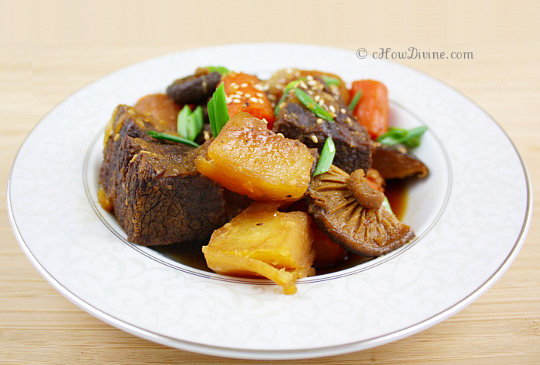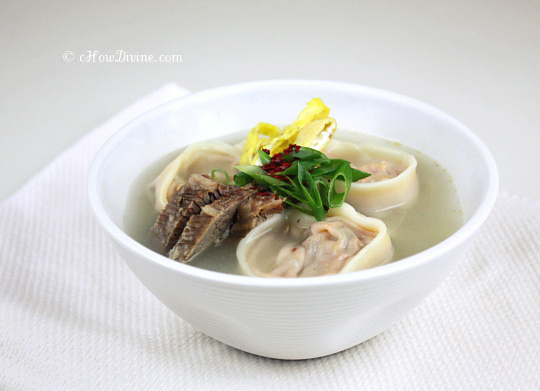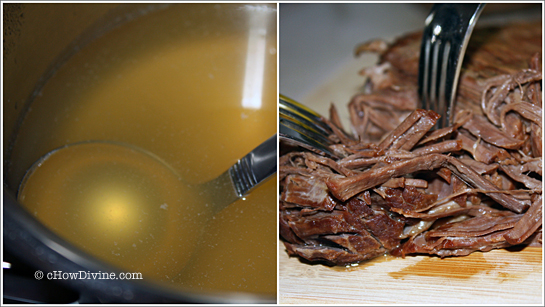This versatile stock can be used for most Korean soups and stews. And the beef can be shredded or cut and used in soups, sauces, sandwiches, and even as banchan on its own. If you want to eat it as banchan, just mix it with a splash of tamari, dark sesame oil, toasted sesame seeds, chopped green onion, pinch of salt, and a generous amount of freshly ground black pepper. Enjoy!
Korean Soy Sauce Braised Brisket

Generally speaking, Koreans love brisket. I know I do. Whether we slice it paper thin and grill it on an iron skillet (chadolbaegi), braise it in soy sauce broth (jangjorim), or use it as a base for a rich broth for soups, brisket is a beloved part of the Korean cuisine.
Although the brisket can be tough because it’s a pretty well-worked cut of meat, it lends itself well to slow, long braises because of it’s relatively high fat content and marbling. This is precisely the reason why I decided to braise it in place of short ribs in a galbi jjim(Korean braised short ribs)-like dish.
Tteok Manduguk (Rice Cake and Dumpling Soup)

My grandmother used to tell me that I couldn’t ring in the New Year without having some Tteok Manduguk (Korean Rice Cake and Dumpling Soup) according to Korean tradition. Who am I to argue with this long-standing tradition?
I’ve been eating Tteok Manduguk on New Year’s Day as far back as I can remember. When I was young, my grandmother made EVERYTHING from scratch: the filling, the mandu skin, and the broth. I don’t have the luxury of my grandmother’s cooking anymore – haven’t for a few years now. But I still consume tons of the soup come every New Year’s Day, usually at a restaurant.
Continue Reading Tteok Manduguk (Rice Cake and Dumpling Soup) . . .

